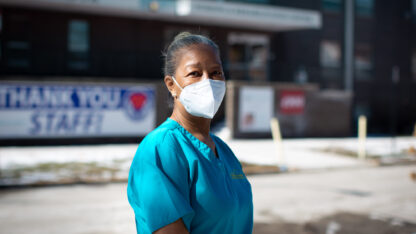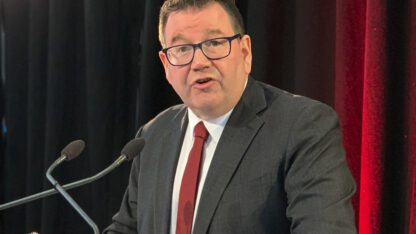Can new sickle cell disease treatments offer hope to hundreds of thousands of Americans?
Some 100,000 Americans live with sickle cell disease, according to the Centers for Disease Control and Prevention — most of them of African-American and Hispanic descent.
It’s a genetic condition that changes the shape of a person’s red blood cells into c-shaped sickles, which can cause blockages in blood vessels, slowing or even stopping normal blood flow.
That can lead to what’s known as a sickle cell “crisis.” Tissues and organs can be damaged because of a lack of oxygen, and people can experience severe pain.
But recent scientific developments — specifically, gene editing — offer some hope for people living with sickle cell disease.
“This is a very big deal. There have been some treatments available for sickle cell disease but nothing really that worked all that well,” said Rob Stein, a correspondent for NPR who’s reported extensively on sickle cell disease, during Tuesday’s “Closer Look” with Rose Scott.
“It’s really been extraordinary to see … how this disease is finally getting attention and finally starting to reap the benefits from some of the scientific advancements that have occurred over the last few years,” Stein continued.
The program also featured a roundtable with Georgians dealing with the daily realities of living with sickle cell: Ife Oyeleye who lives in Cumming and whose husband and two children have sickle cell disease; and India Hardy who lives in Athens and was diagnosed with the condition at an early age.
Even with recent advancements in treatment, individuals still face challenges, such as getting access to care.
“When I was younger, I traveled a lot to Atlanta to the specialists there and the hospitals there are very understanding when it comes to treating sickle cell pain,” Hardy said. “Here in my small town, you don’t have the resources or the doctors that are educated on treating this disease. We go through a lot of difficult times.”
They were joined by Dr. Clark Brown, a pediatric hematologist and director of sickle cell clinical research at the Aflac Cancer and Blood Disorders Center at Children’s Healthcare of Atlanta.








